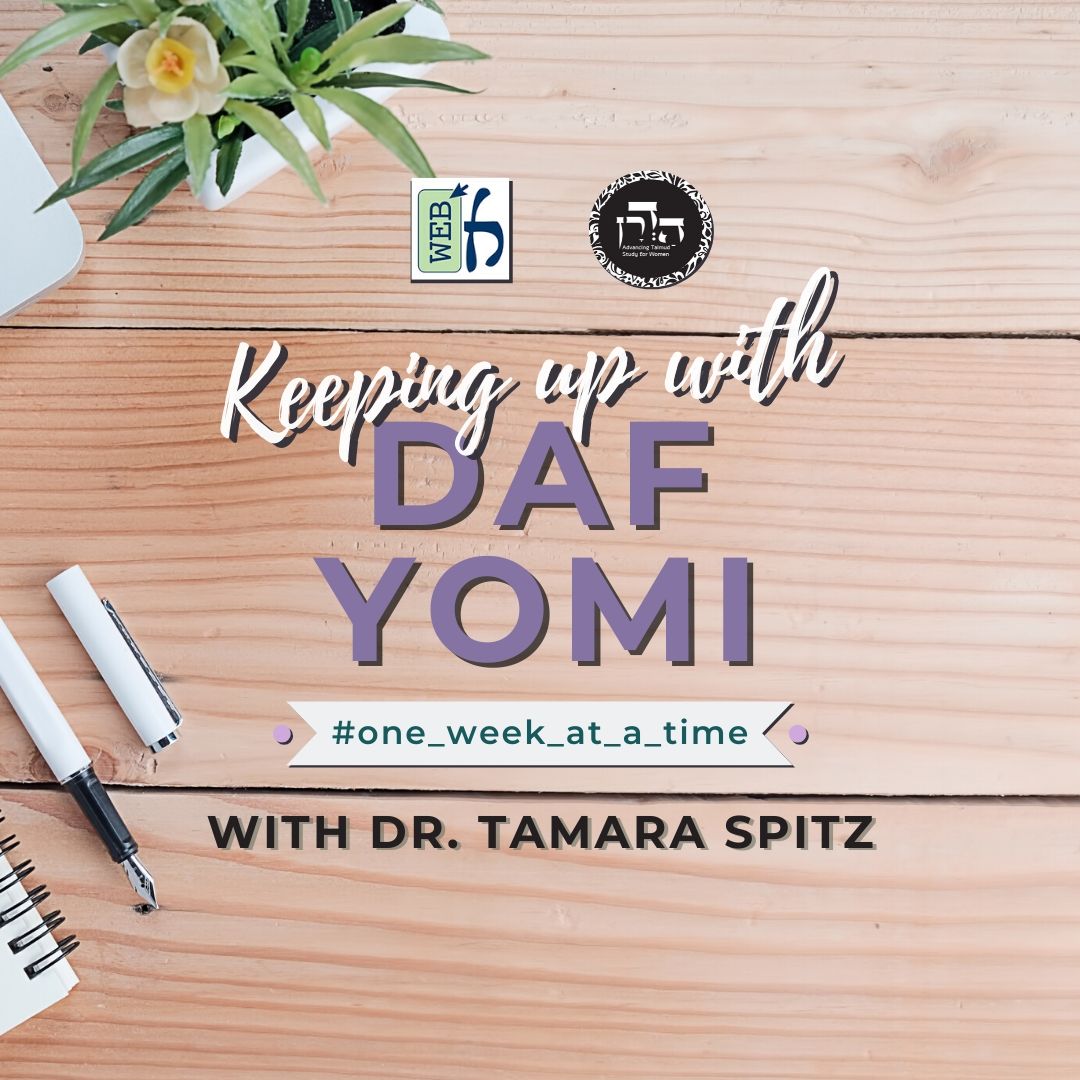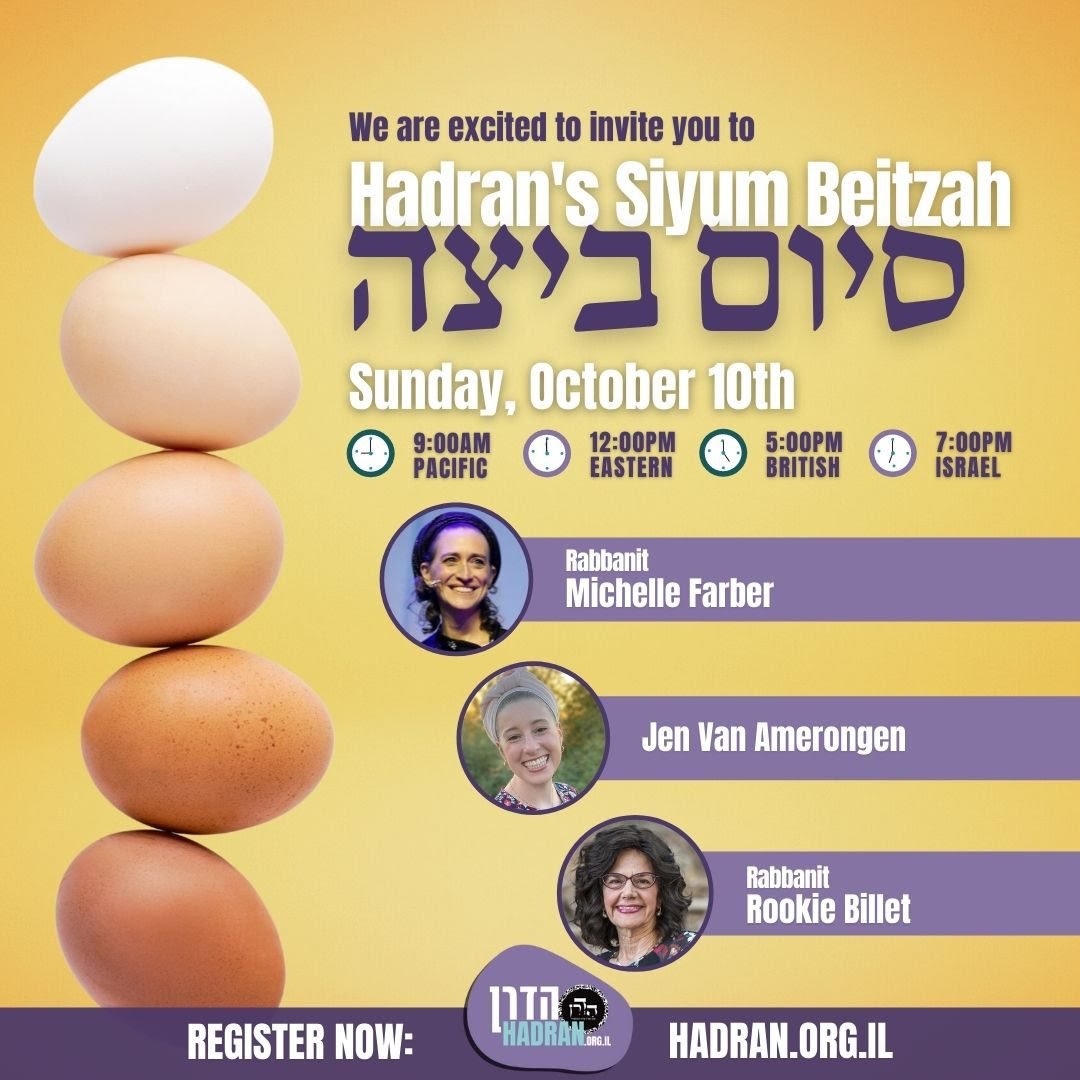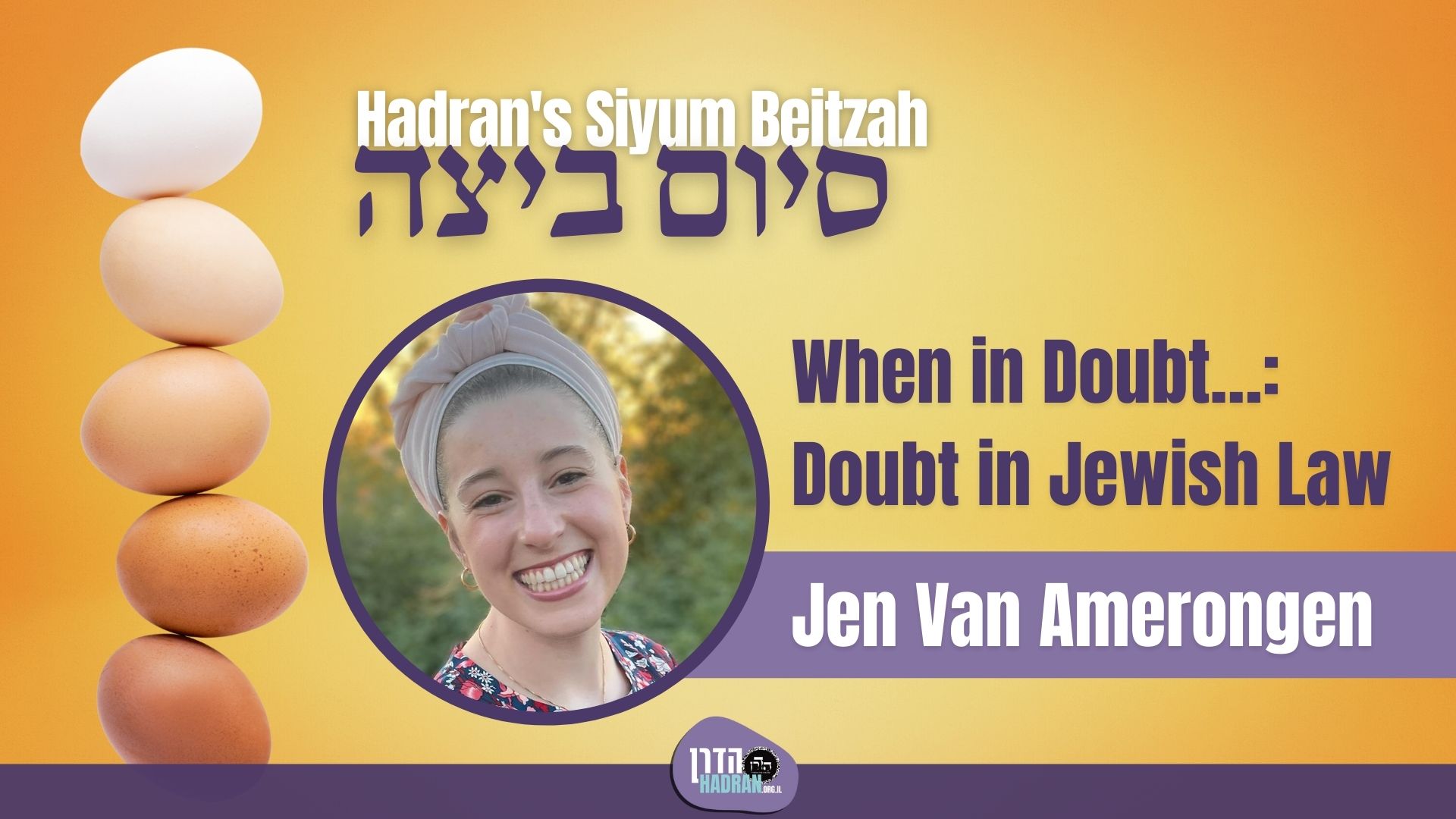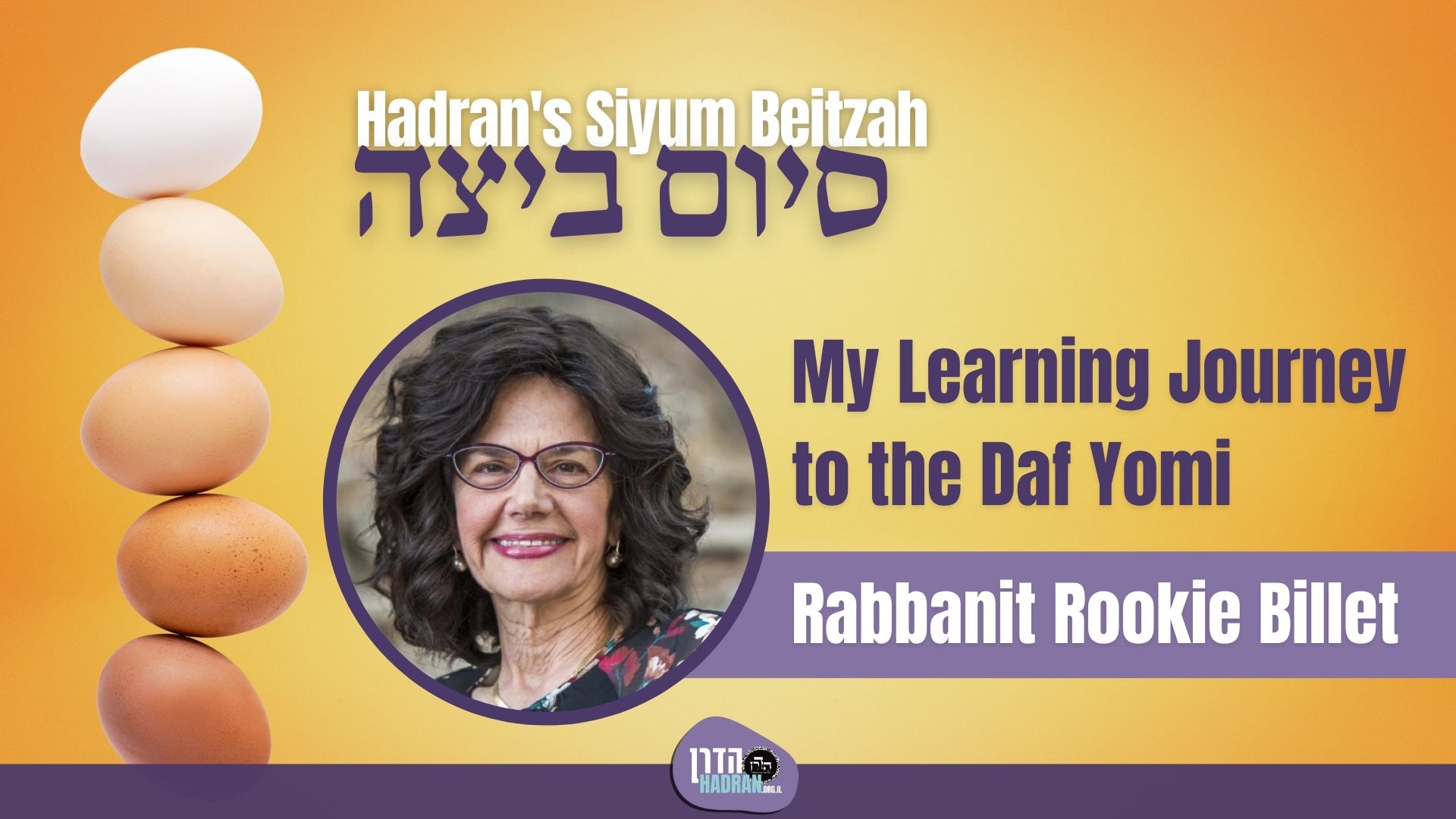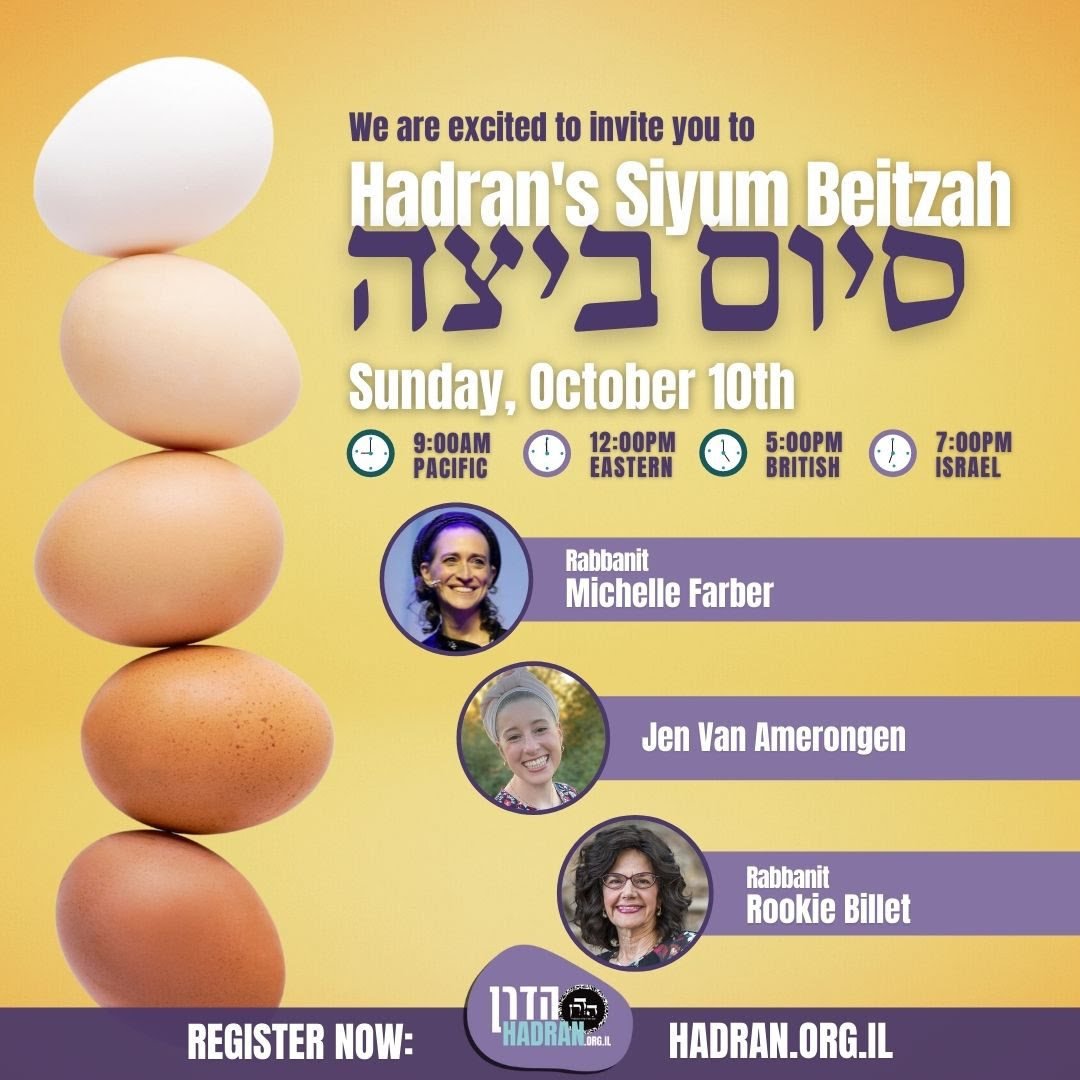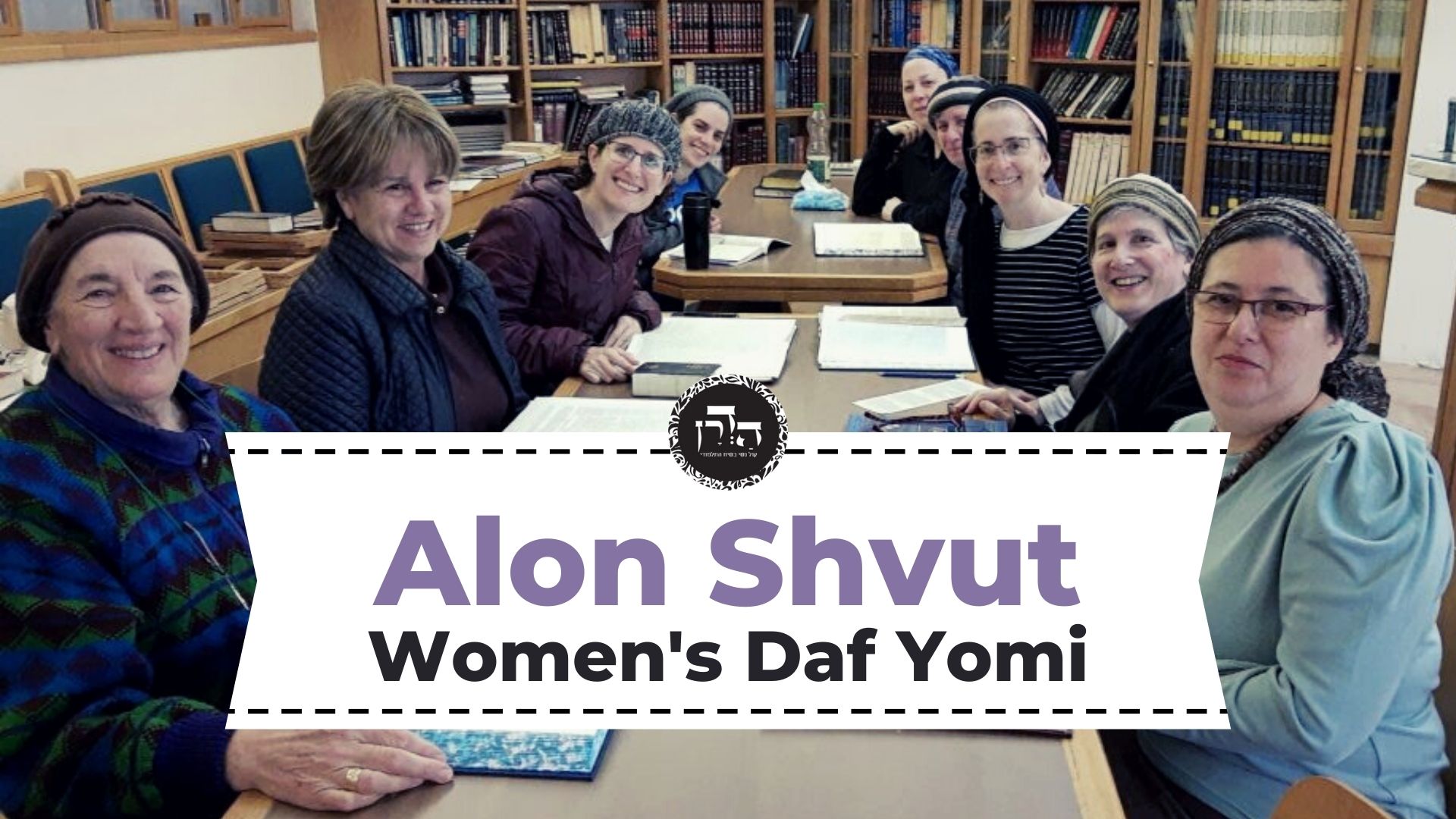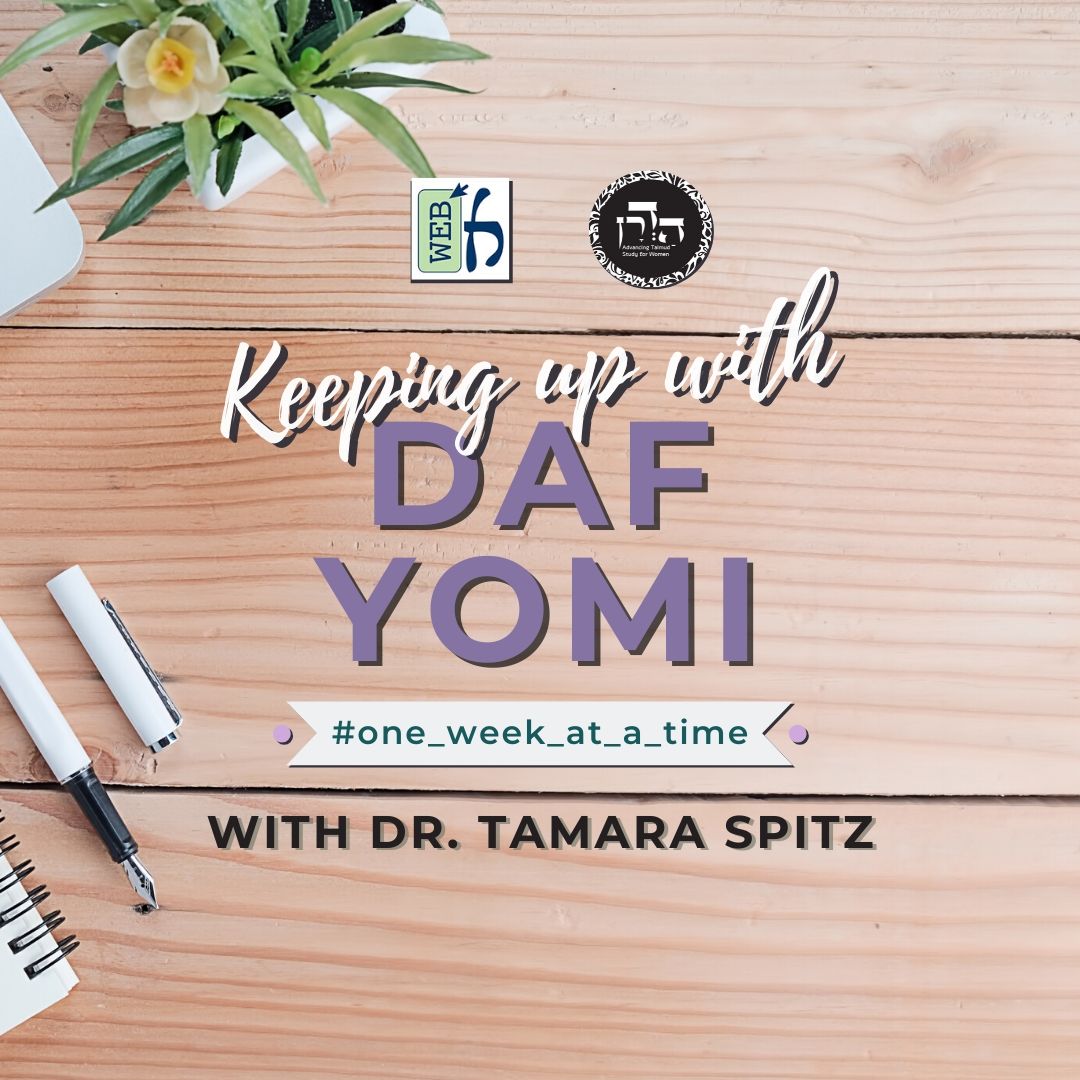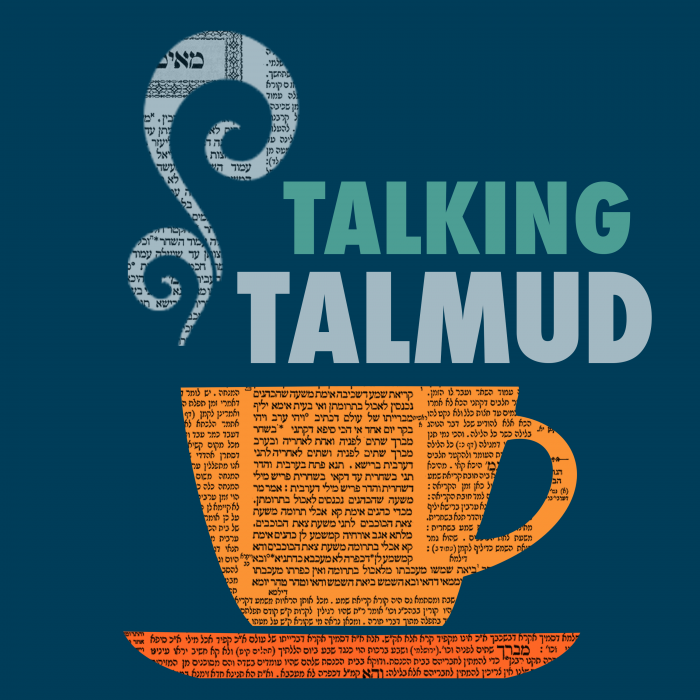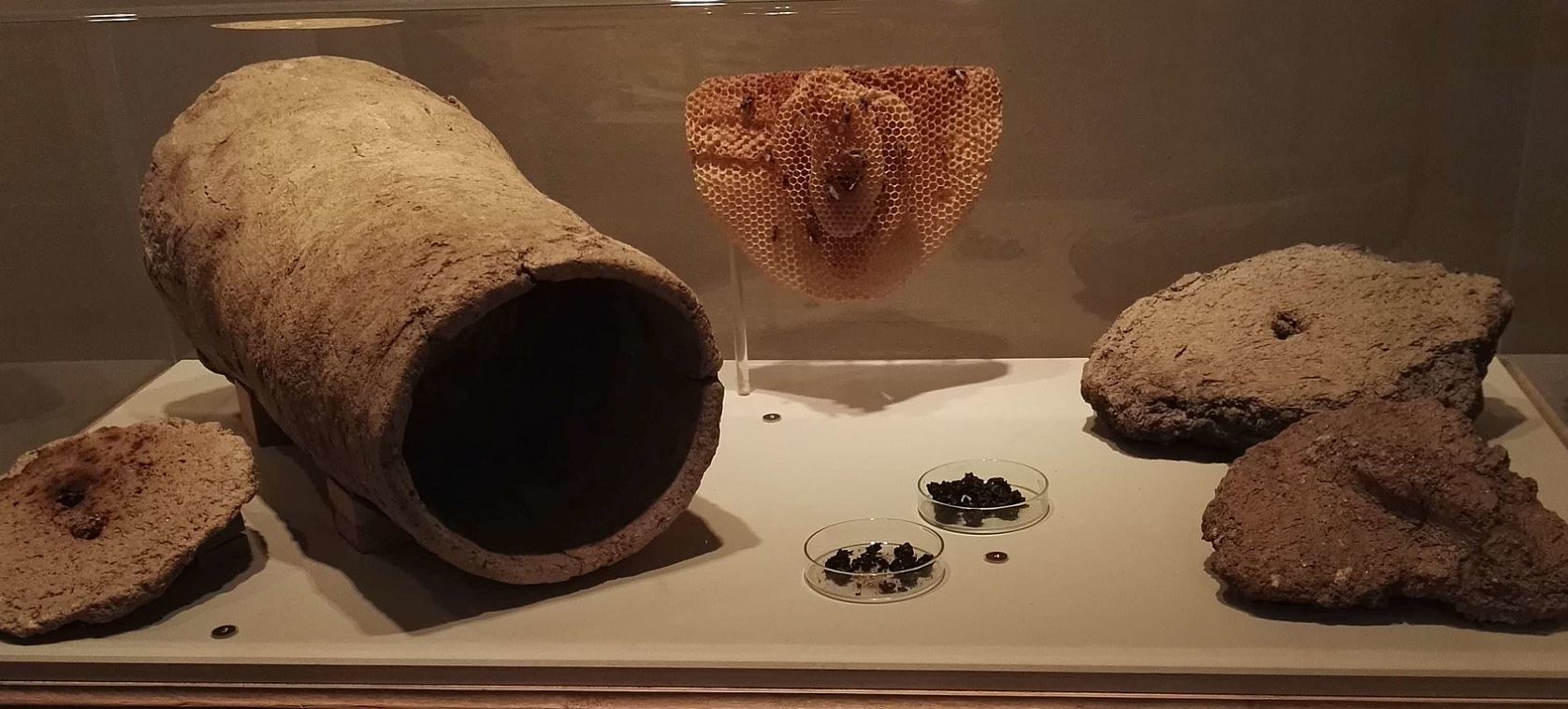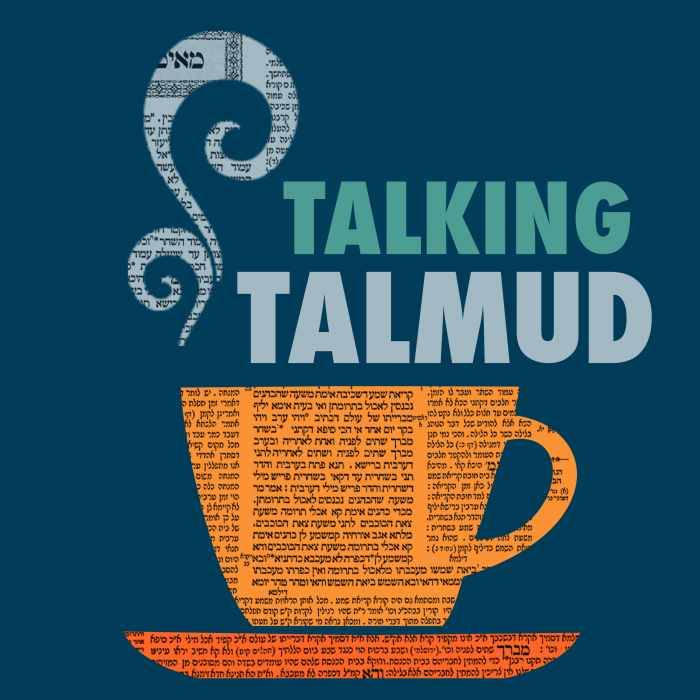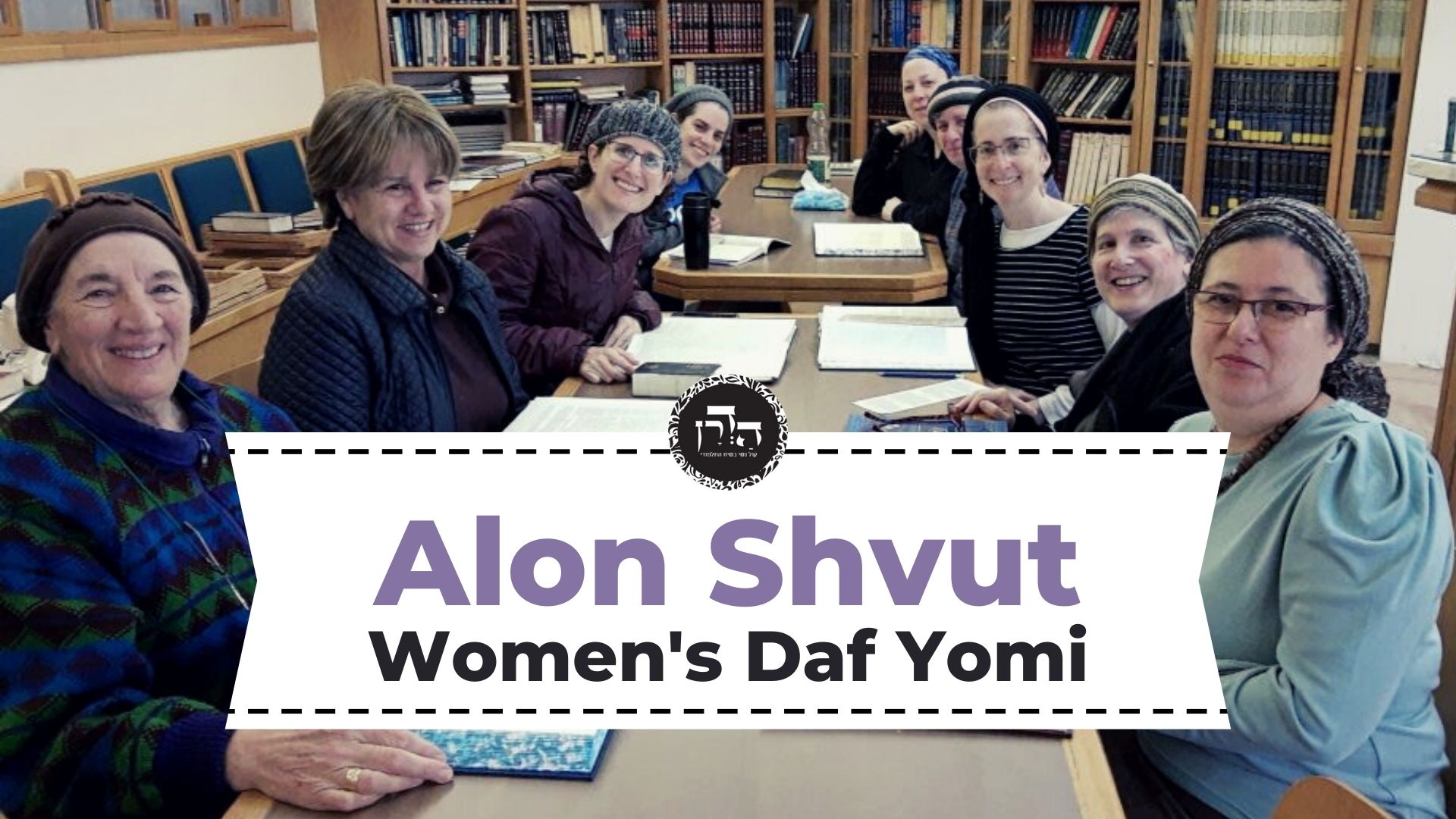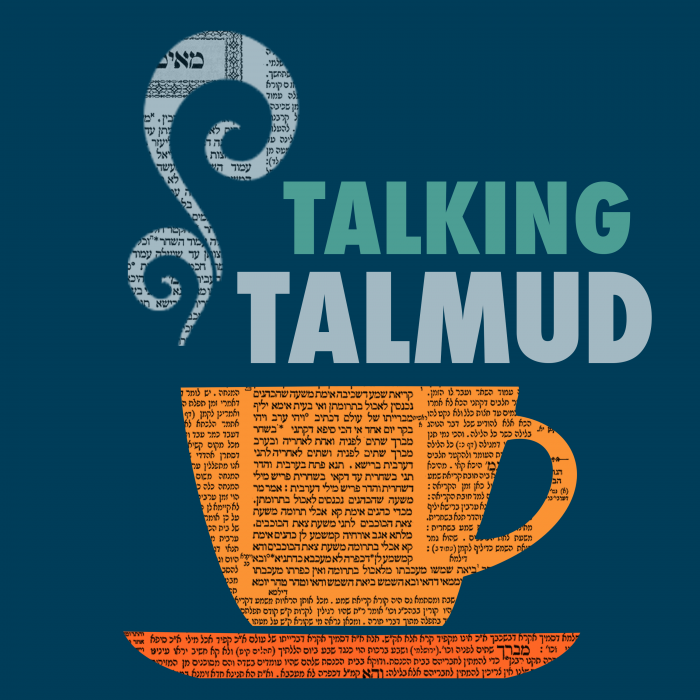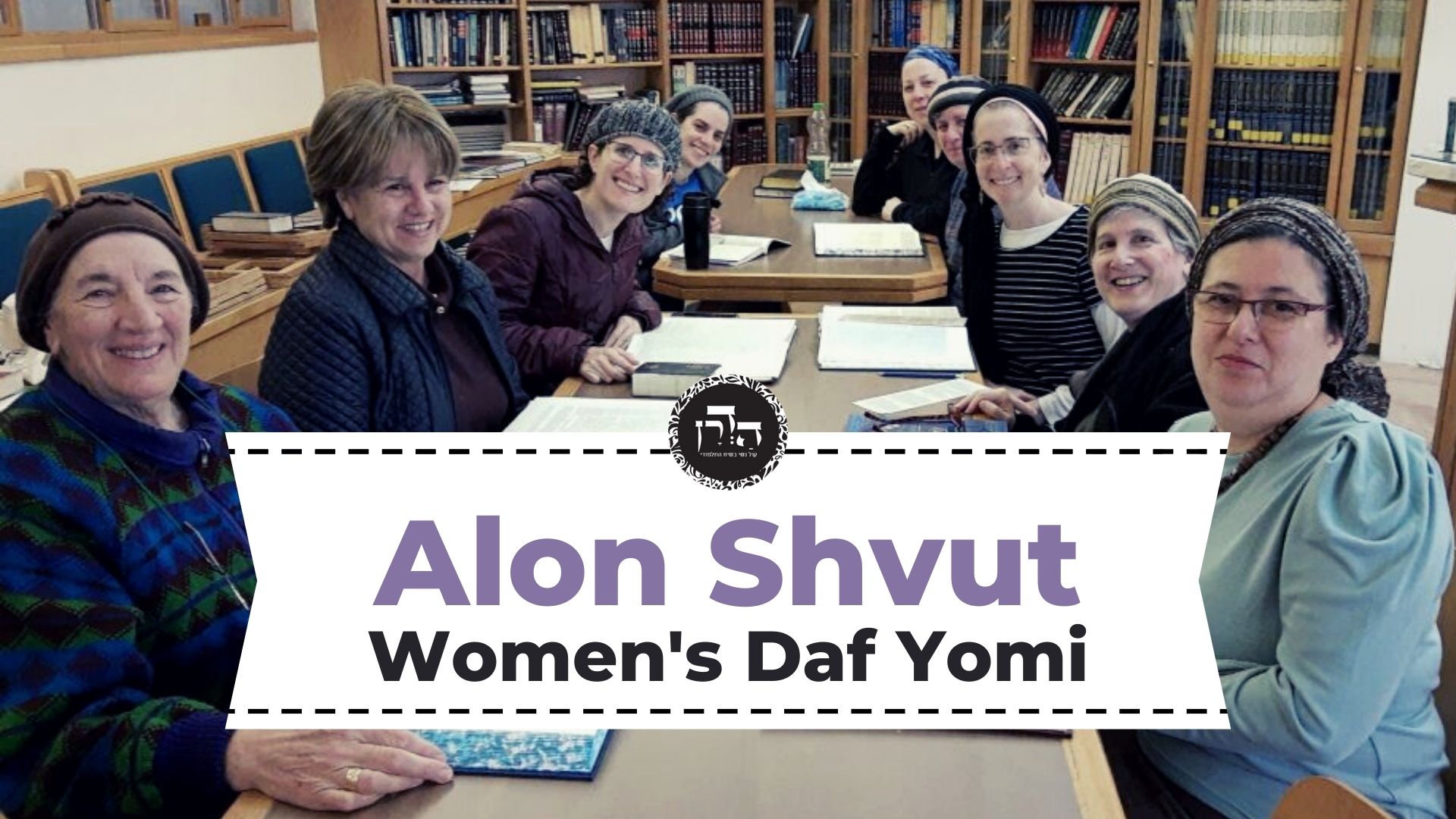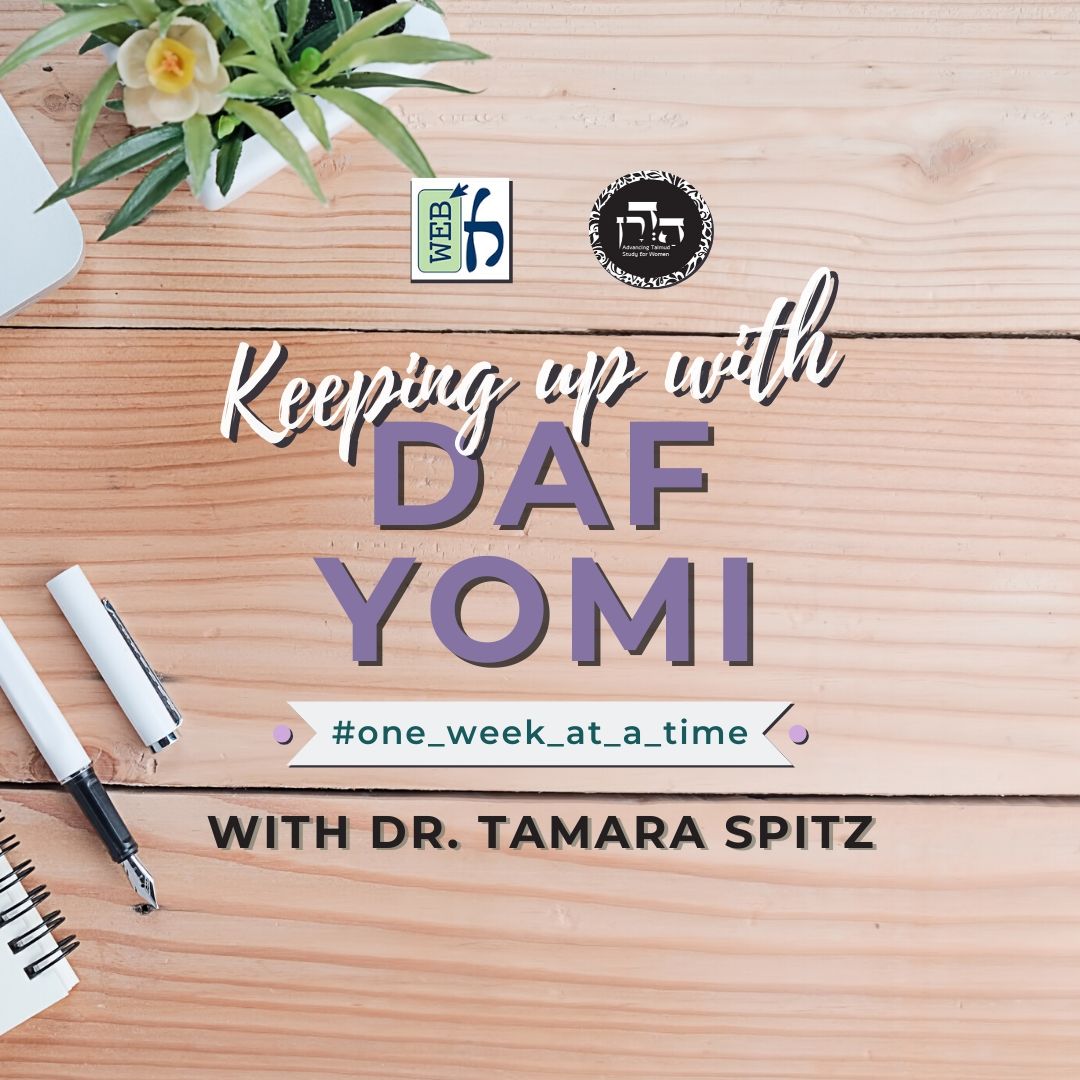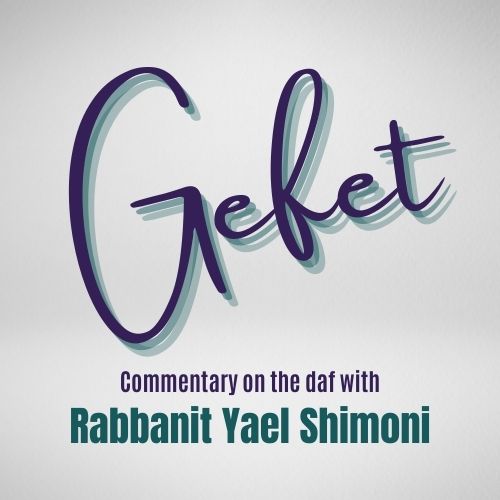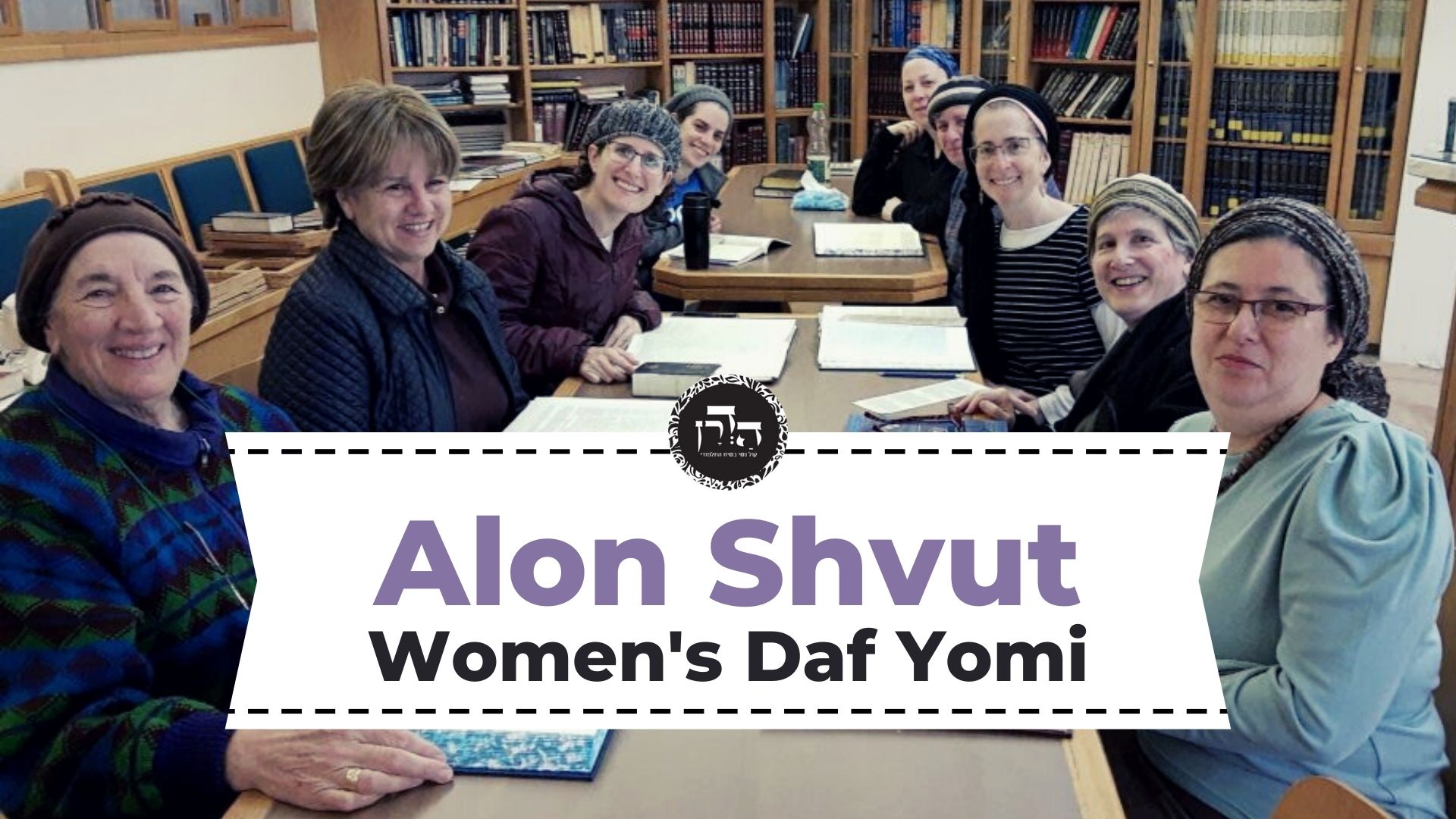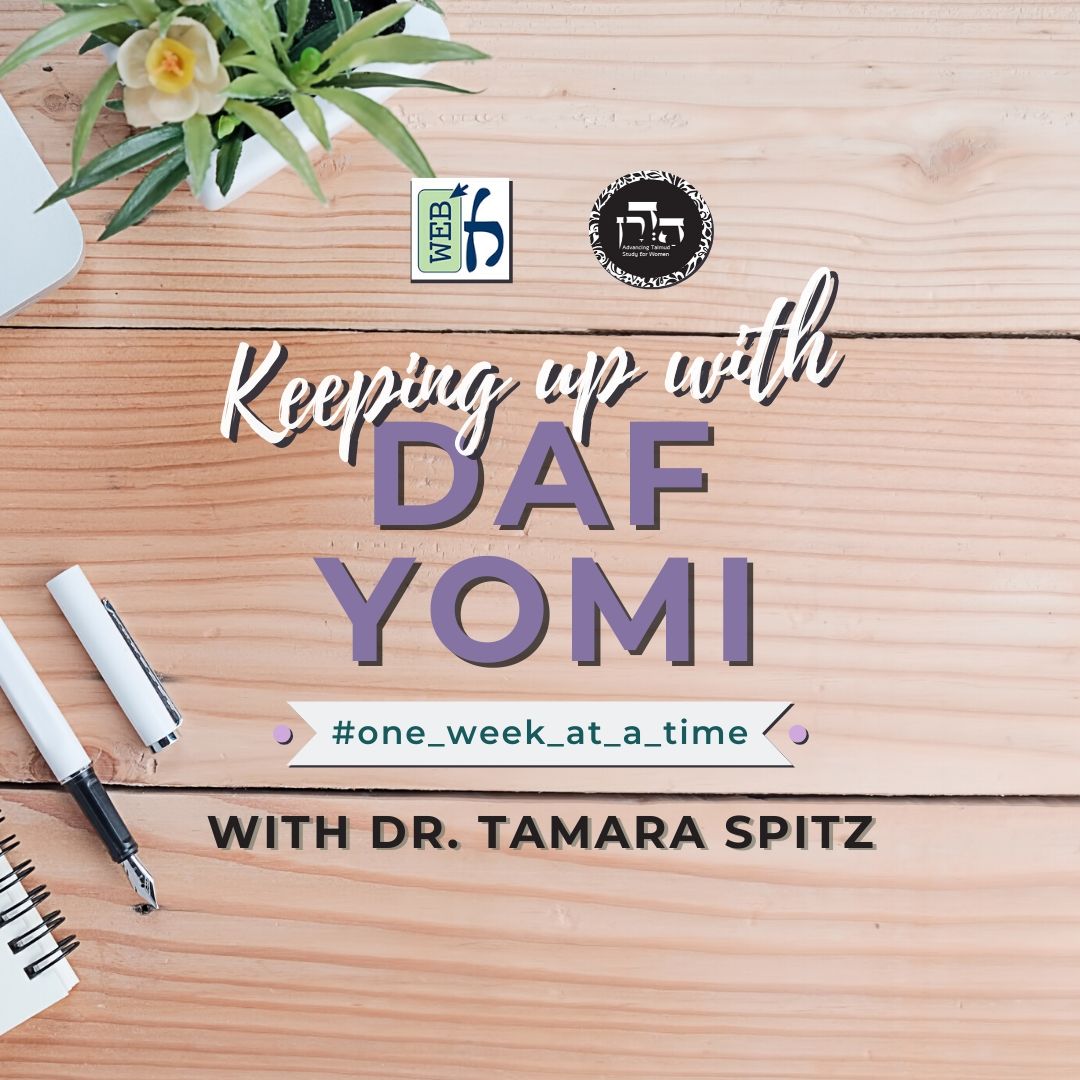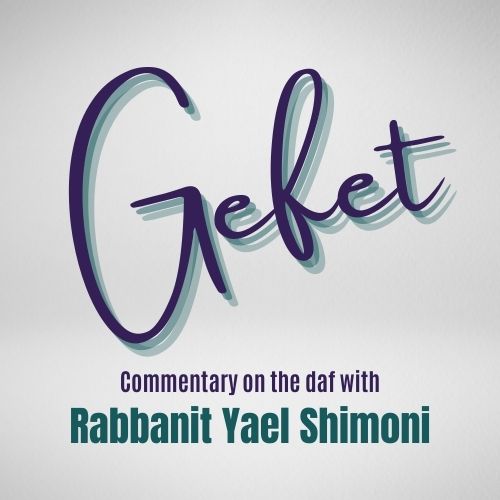Beitzah 25
חוּץ לַתְּחוּם — אָסוּר. וְהַבָּא בִּשְׁבִיל יִשְׂרָאֵל זֶה — מוּתָּר לְיִשְׂרָאֵל אַחֵר.
If, however, the gift was brought from outside the limit, it is prohibited. And an item that came from outside the limit for one Jew is permitted to another Jew. No prohibition applies to the second recipient, as the gentile’s intention was not fulfilled. Since the halakha of limits is a rabbinic prohibition, the Sages decreed that the object is prohibited only to the one on behalf of whom it was brought, but not to others.
אָמַר רַבָּה בַּר רַב הוּנָא אָמַר רַב: הַסּוֹכֵר אַמַּת הַמַּיִם מֵעֶרֶב יוֹם טוֹב, וּלְמָחָר הִשְׁכִּים וּמָצָא בָּהּ דָּגִים — מוּתָּרִין.
§ The Gemara continues its discussion about trapping animals on a Festival. Rabba bar Rav Huna said that Rav said: If one dammed a water channel that was used to irrigate a field on the eve of a Festival, and the following day he arose and found fish in it, they are permitted. These fish presumably arrived with the water before the Festival and were unable to escape, as the channel had been obstructed. Therefore, the fish are considered as having been prepared before the Festival.
אָמַר רַב חִסְדָּא, מִדִּבְרֵי רַבֵּינוּ נִלְמוֹד: חַיָּה שֶׁקִּנְּנָה בְּפַרְדֵּס — אֵינָהּ צְרִיכָה זִמּוּן. אָמַר רַב נַחְמָן: נְפַל חַבְרִין, בְּרַבְרְבָתָא. אִיכָּא דְּאָמְרִי: אָמַר רַבָּה בַּר רַב הוּנָא, מִדִּבְרֵי רַבֵּינוּ נִלְמוֹד: חַיָּה שֶׁקִּנְּנָה בְּפַרְדֵּס — אֵינָהּ צְרִיכָה זִמּוּן. אָמַר רַב נַחְמָן: נְפַל בַּר חַבְרִין בְּרַבְרְבָתָא.
Rav Ḥisda said: From this statement of our teacher, Rav, we learn that an undomesticated animal that nested in an orchard near one’s house does not require special designation but is considered prepared. Rav Naḥman said in response to this conclusion: Our colleague, Rav Ḥisda, has fallen upon a great matter, i.e., an issue that is not at all straightforward but is the subject of various disagreements. Some say a slightly different version of this statement, that Rabba bar Rav Huna said: From this statement of our teacher, Rav, we learn that an undomesticated animal that nested in an orchard does not require special designation, and with regard to this statement, Rav Naḥman said that Rabba, son of our colleague, Rav Huna, has fallen upon a great matter. Rav Huna was a contemporary of Rav Naḥman’s, and they were both students of Rav; consequently, Rav Naḥman referred to Rav Huna as his colleague and called Rabba the son of his colleague.
הָתָם לָא קָא עָבֵיד מַעֲשֶׂה, הָכָא קָא עָבֵיד מַעֲשֶׂה.
Rav Naḥman explains the difference between the cases: There, in the case where the undomesticated animal nested in an orchard, the person performed no action at all, as the animal came of its own accord, whereas here, in the case where he dammed the water channel, he performed an action when he blocked the water from leaving the channel.
וְלָא בָּעֲיָא זִמּוּן? וְהָתַנְיָא: חַיָּה שֶׁקִּנְּנָה בְּפַרְדֵּס — צְרִיכָה לְזַמֵּן, וְצִפּוֹר דְּרוֹר — צָרִיךְ לִקְשׁוֹר בִּכְנָפֶיהָ כְּדֵי שֶׁלֹּא תִּתְחַלֵּף בְּאִמָּהּ. וְזוֹ עֵדוּת שֶׁהֵעִידוּ מִפִּי שְׁמַעְיָה וְאַבְטַלְיוֹן. תְּיוּבְתָּא.
Rav Naḥman concludes his challenge: And does the animal not require further designation? Isn’t it taught explicitly in a baraita: An undomesticated animal that nested in an orchard requires designation. And as for a free bird, one is required to tie its wings so that it will not be mistaken for its mother, i.e., so that he not take a different bird, such as its mother, in its place. And this is a testimony that was reported in the name of Shemaya and Avtalyon. The Gemara comments: Indeed, this is a conclusive refutation of the Sages who drew an inference from Rav’s statement.
וּמִי בָּעֲיָא זִמּוּן? וְהָתַנְיָא, אָמַר רַבִּי שִׁמְעוֹן בֶּן אֶלְעָזָר: מוֹדִים בֵּית שַׁמַּאי וּבֵית הִלֵּל עַל שֶׁהִזְמִינָן בְּתוֹךְ הַקֵּן וּמָצָא לִפְנֵי הַקֵּן — שֶׁאֲסוּרִין. בַּמֶּה דְּבָרִים אֲמוּרִים — בְּיוֹנֵי שׁוֹבָךְ וְיוֹנֵי עֲלִיָּה, וְצִפֳּרִים שֶׁקִּנְּנוּ בִּטְפִיחִין וּבְבִירָה. אֲבָל אֲווֹזִים וְתַרְנְגוֹלִים וְיוֹנֵי הַרְדָּסִיָּאוֹת וְחַיָּה שֶׁקִּנְּנָה בְּפַרְדֵּס — מוּתָּרִין, וְאֵין צְרִיכִין זִמּוּן. וְצִפּוֹר דְּרוֹר צְרִיכָה לְקַשֵּׁר בִּכְנָפֶיהָ, כְּדֵי שֶׁלֹּא תִּתְחַלֵּף בְּאִמָּהּ.
The Gemara asks: Does an undomesticated animal in an orchard really require designation? But isn’t it taught in a baraita that Rabbi Shimon ben Elazar said: Beit Shammai and Beit Hillel concede with regard to doves and the like that one had designated on the eve of a Festival when they were inside the nest, and on the Festival itself he found them in front of the nest, that they are prohibited, as these doves might not be the same ones that he had designated but rather others that came from somewhere else? In what case is this statement said? It is with regard to doves of a dovecote, doves of a loft, and birds nesting in pitchers or in a building. However, geese, chicken, domestic doves, and an undomesticated animal that nested in an orchard are permitted in all cases, and they do not require designation in advance. In the case of a free bird, one is required to tie its wings so that it is not mistaken for its mother.
וְהַמְקוּשָּׁרִים וְהַמְנוּעֲנָעִין, בְּבוֹרוֹת וּבְבָתִּים וּבְשִׁיחִין וּבִמְעָרוֹת — מוּתָּרִין, וּבְאִילָנוֹת — אֲסוּרִין, שֶׁמָּא יַעֲלֶה וְיִתְלוֹשׁ. וְהַמְקוּשָּׁרִין וְהַמְנוּעֲנָעִין — בְּכׇל מָקוֹם אֲסוּרִין, מִשּׁוּם גָּזֵל.
And with regard to those birds whose wings were tied as a sign, and similarly, those that were shaken in advance in order to designate them for the Festival, if they were in cisterns, in houses, in trenches, or in caves, they are permitted on the Festival. However, if they were in trees, they are prohibited, lest one climb up the tree and detach something from it, which is prohibited. And those birds whose wings were tied by another, and similarly, those that were shaken by another are prohibited in all places, even not on a Festival, due to the prohibition against stealing. Tying or shaking is considered an act of acquisition, and therefore others may not take them. In any case, this baraita clearly states that an undomesticated animal that nested in an orchard does not require designation.
אָמַר רַב נַחְמָן, לָא קַשְׁיָא: הָא בַּהּ, הָא בְּאִמַּהּ. אִמַּהּ בְּזִמּוּן סַגִּי לַהּ? צֵידָה מְעַלְּיוּתָא בָּעֲיָא!
Rav Naḥman said: This is not difficult. This baraita, which teaches that an animal nesting in an orchard is permitted even without designation, is referring to it, a young animal that cannot escape; whereas that baraita, which states that designation is required, is referring to its mother, which is larger and can escape. The Gemara asks: But is mere designation sufficient for its mother? Doesn’t it require complete capture, as it is an undomesticated animal?
אֶלָּא אָמַר רַב נַחְמָן בַּר יִצְחָק: אִידֵּי וְאִידֵּי בְּדִידַהּ. הָא בְּגִנָּה הַסְּמוּכָה לָעִיר, הָא בְּגִנָּה שֶׁאֵינָהּ סְמוּכָה.
Rather, Rav Naḥman bar Yitzḥak said that both this baraita and that one are referring to it, a young animal that is unable to escape, and the difference between them is as follows: This baraita, which does not require designation, is referring to a garden situated near the city, so that one knows precisely where the animal is located and he can take it at any time. That baraita, which requires designation, is referring to a garden that is not located nearby.
מַתְנִי׳ בְּהֵמָה מְסוּכֶּנֶת — לֹא יִשְׁחוֹט, אֶלָּא אִם כֵּן יֵשׁ שְׁהוּת בַּיּוֹם לֶאֱכוֹל מִמֶּנָּה כְּזַיִת צָלִי. רַבִּי עֲקִיבָא אוֹמֵר: אֲפִילּוּ כְּזַיִת חַי מִבֵּית טְבִיחָתָהּ.
MISHNA: If an animal is in danger of dying, in which case its meat would be prohibited as the animal had not been properly slaughtered, and one wishes to slaughter it in the hope that it will be found fit for eating and he will be spared a loss, he may not slaughter it on a Festival unless there is still time in the day for him to eat an olive-bulk of roasted meat from the animal, so that it is possible to say that he slaughtered the animal for the sake of the Festival. Rabbi Akiva says: There need not be enough time for him to roast it; rather, it is sufficient even if there is only time to eat an olive-bulk of raw meat from the place where the animal is slaughtered, i.e., from its neck, without going to the trouble of removing its hide and roasting it.
שְׁחָטָהּ בַּשָּׂדֶה — לֹא יְבִיאֶנָּה בְּמוֹט וּבְמוֹטָה, אֲבָל מֵבִיא בְּיָדוֹ אֵבָרִים אֵבָרִים.
If one slaughtered an animal on a Festival in the field, he may not bring it to his house on a pole or on a set of poles carried by two people, as this appears similar to a weekday activity. Rather, he must alter his usual weekday manner of performing this action and bring it in by hand, limb by limb.
גְּמָ׳ אָמַר רָמֵי בַּר אַבָּא: הֶפְשֵׁט וְנִתּוּחַ בְּעוֹלָה, וְהוּא הַדִּין לְקַצָּבִים. מִכָּאן לִמְּדָה תּוֹרָה דֶּרֶךְ אֶרֶץ: שֶׁלֹּא יֹאכַל אָדָם בָּשָׂר קוֹדֶם הֶפְשֵׁט וְנִתּוּחַ.
GEMARA: Rami bar Abba said: The mitzva of flaying and cutting the animal into pieces is mentioned in the Torah with regard to the burnt-offering, and the same is true for butchers. That is to say, we learn from the halakhot of the burnt offering that a butcher should first remove the hide and cut the animal into pieces. From here the Torah taught proper etiquette, that a person should not eat meat before flaying and cutting the animal into pieces.
(לְאַפּוֹקֵי) מַאי קָא מַשְׁמַע לַן? אִילֵּימָא לְאַפּוֹקֵי מִדְּרַב הוּנָא, דְּאָמַר רַב הוּנָא: בְּהֵמָה בְּחַיֶּיהָ — בְּחֶזְקַת אִיסּוּר עוֹמֶדֶת, עַד שֶׁיִּוָּדַע לָךְ בַּמֶּה נִשְׁחֲטָה.
The Gemara asks: What new halakha is Rami bar Abba teaching us? If we say that he wishes to exclude the opinion of Rav Huna, there is a difficulty, as Rav Huna said: An animal, while alive, retains its presumptive status of being subject to the prohibition against eating a limb from a living creature, and it retains that status after slaughter until it becomes known to you how it was slaughtered. As long as it has not yet been clarified that the animal was slaughtered properly, it is presumed to be prohibited.
נִשְׁחֲטָה — בְּחֶזְקַת הֶיתֵּר עוֹמֶדֶת, עַד שֶׁיִּוָּדַע לָךְ בַּמֶּה נִטְרְפָה.
However, once the animal has been slaughtered properly, it retains its presumptive status of being permitted until it becomes known to you how it became a tereifa, an animal suffering from a wound or illness that would cause it to die within twelve months, which is prohibited to be eaten even after ritual slaughter. There is no need to conduct a special examination of the animal to determine if it had a defect or illness, as it is presumed to be permitted. Even if a defect is found, this does not necessarily render the animal a tereifa, as one can say that it appeared only after the animal was slaughtered.
וְהָאֲנַן תְּנַן מַתְנִיתִין כִּדְרַב הוּנָא! דִּתְנַן, רַבִּי עֲקִיבָא אוֹמֵר: אֲפִילּוּ כְּזַיִת חַי מִבֵּית טְבִיחָתָהּ. מַאי לָאו, מִבֵּית טְבִיחָתָהּ מַמָּשׁ?
One might have understood from Rami bar Abba’s statement that he disagrees with Rav Huna and requires that the animal be examined. However, this is difficult, as didn’t we learn in the mishna in accordance with the opinion of Rav Huna? As we learned in the mishna that Rabbi Akiva says: It is sufficient even if there is only time to eat an olive-bulk of raw meat from the place where the animal is slaughtered. What, is it not referring to meat from the actual place where the animal is slaughtered, from which it follows that one need not remove the hide or examine the animal?
לָא: מִמָּקוֹם שֶׁטּוֹבַחַת אֲכִילָתָהּ.
The Gemara rejects this argument: No, the mishna can be understood as follows: From the place where the animal slaughters its food, i.e., from its intestines, where digestion takes place. The hide must still be removed and the animal must be examined before it can be eaten.
וְהָא תָּנֵי רַבִּי חִיָּיא: מְקוֹם טְבִיחָתָהּ מַמָּשׁ. אֶלָּא, רָמֵי בַּר אַבָּא
But didn’t Rabbi Ḥiyya teach: From the actual place where the animal is slaughtered? Rather, the Gemara rejects the previous explanation and says that Rami bar Abba
אוֹרַח אַרְעָא קָא מַשְׁמַע לַן.
merely teaches us proper etiquette, even though no prohibition is involved.
כִּדְתַנְיָא: לֹא יֹאכַל אָדָם שׁוּם וּבָצָל מֵרֹאשׁוֹ, אֶלָּא מֵעָלָיו. וְאִם אָכַל — הֲרֵי זֶה רְעַבְתָּן. כַּיּוֹצֵא בוֹ: לֹא יִשְׁתֶּה אָדָם כּוֹסוֹ בְּבַת אַחַת, וְאִם שָׁתָה — הֲרֵי זֶה גַּרְגְּרָן. תָּנוּ רַבָּנַן: הַשּׁוֹתֶה כּוֹסוֹ בְּבַת אַחַת — הֲרֵי זֶה גַּרְגְּרָן, שְׁנַיִם — דֶּרֶךְ אֶרֶץ, שְׁלֹשָׁה — מִגַּסֵּי הָרוּחַ.
§ The Sages teach proper manners unconnected to any prohibition, as it is taught in a baraita: A person should not eat garlic or onions from the side of its head, i.e., its roots, but rather from the side of its leaves. And if he did eat in that manner, he gives the appearance of being a glutton. Similarly, a person should not drink his cup of wine all at once, and if he did drink in this manner, he gives the appearance of being a greedy drinker. The Sages taught in this regard: One who drinks his cup all at once is a greedy drinker; if he does so in two swallows, this is proper etiquette; in three swallows, he is of haughty spirit, as he presents himself as overly delicate and refined.
וְאָמַר רָמֵי בַּר אַבָּא: חֲצוּבָא — מְקַטַּע רַגְלֵיהוֹן דְּרַשִּׁיעַיָּא.
Apropos the previous discussion, the Gemara notes that Rami bar Abba also said: The sea squill, a plant from the lily family whose roots project deep into the ground, will cut off the feet of the wicked in the future on the Day of Judgment. It was customary to plant sea squill on the edges of fields as boundary markers because their roots grow straight down without spreading out. Those who overstepped boundaries and infringed upon their neighbor’s property should have heeded the markers and desisted.
נְטִיעָה — מְקַטַּע רַגְלֵיהוֹן דְּקַצָּבַיָּא וּדְבוֹעֲלֵי נִדּוֹת.
Similarly, young trees will cut off the feet of butchers and those who have relations with menstruating women. After a tree is planted, one must wait three years before eating its fruit. This should serve as a lesson for those butchers who hasten to eat of the animal’s meat before removing its hide, and for those who have relations with their menstruating wives and do not wait for them to achieve ritual purification.
תּוֹרְמוֹסָא — מְקַטַּע רַגְלֵיהוֹן דְּשָׂנְאֵיהוֹן שֶׁל יִשְׂרָאֵל. שֶׁנֶּאֱמַר: ״וַיּוֹסִיפוּ בְּנֵי יִשְׂרָאֵל לַעֲשׂוֹת הָרַע בְּעֵינֵי ה׳ וַיַּעַבְדוּ אֶת הַבְּעָלִים וְאֶת הָעַשְׁתָּרוֹת וְאֶת אֱלֹהֵי אֲרָם וְאֶת אֱלֹהֵי צִידוֹן וְאֵת אֱלֹהֵי מוֹאָב וְאֵת אֱלֹהֵי בְנֵי עַמּוֹן וְאֵת אֱלֹהֵי פְלִשְׁתִּים וַיַּעַזְבוּ אֶת ה׳ וְלֹא עֲבָדוּהוּ״.
The lupine [turmus], an extremely bitter legume that is edible only after an extensive process, will cut off the feet of the enemies of the Jewish people, a euphemism for the Jewish people themselves. As it is stated: “And the children of Israel continued to do evil in the eyes of the Lord, and served the Baalim and the Ashtaroth, and the gods of Aram and the gods of Zidon and the gods of Moab and the gods of the children of Ammon and the gods of the Philistines, and they forsook the Lord and did not serve Him” (Judges 10:6).
מִמַּשְׁמַע שֶׁנֶּאֱמַר ״וַיַּעַזְבוּ אֶת ה׳״, אֵינִי יוֹדֵעַ שֶׁלֹּא עֲבָדוּהוּ?! וּמָה תַּלְמוּד לוֹמַר ״וְלֹא עֲבָדוּהוּ״ — אָמַר רַבִּי אֶלְעָזָר, אָמַר הַקָּדוֹשׁ בָּרוּךְ הוּא: אֲפִילּוּ כַּתּוֹרְמוֹס הַזֶּה שֶׁשּׁוֹלְקִין אוֹתוֹ שֶׁבַע פְּעָמִים וְאוֹכְלִין אוֹתוֹ בְּקִנּוּחַ סְעוּדָה לֹא עֲשָׂאוּנִי בָּנַי.
By inference from that which is stated: “And they forsook the Lord,” do I not know that they did not serve Him? Rather, for what purpose does the verse state the seemingly unnecessary words “and did not serve Him”? Rabbi Elazar said: The Holy One, Blessed be He, said: My children did not treat Me even like this lupine, which, because it is inedible as it is, must be cooked in water seven times in order to temper its bitter taste and is eventually made so sweet that one eats it as a dessert after a meal. They worshipped all seven types of idolatry listed in the verse, and even after I punished them for each and every one of them, they still refused to repent from their evil ways. Instead, they remained rebellious and did not serve Me.
תָּנָא מִשְּׁמֵיהּ דְּרַבִּי מֵאִיר: מִפְּנֵי מָה נִתְּנָה תּוֹרָה לְיִשְׂרָאֵל — מִפְּנֵי שֶׁהֵן עַזִּין. תָּנָא דְּבֵי רַבִּי יִשְׁמָעֵאל: ״מִימִינוֹ אֵשׁ דָּת לָמוֹ״. אָמַר הַקָּדוֹשׁ בָּרוּךְ הוּא: רְאוּיִין הַלָּלוּ שֶׁתִּנָּתֵן לָהֶם דָּת אֵשׁ. אִיכָּא דְּאָמְרִי: דָּתֵיהֶם שֶׁל אֵלּוּ — אֵשׁ. שֶׁאִלְמָלֵא (לֹא) נִתְּנָה תּוֹרָה לְיִשְׂרָאֵל — אֵין כׇּל אוּמָּה וְלָשׁוֹן יְכוֹלִין לַעֲמוֹד בִּפְנֵיהֶם.
The Gemara considers another aspect of the character of the Jewish people. It is taught in a baraita in the name of Rabbi Meir: For what reason was the Torah given to the Jewish people? It is because they are impudent, and Torah study will weaken and humble them. A Sage of the school of Rabbi Yishmael taught the following with regard to the verse: “From His right hand went a fiery law for them” (Deuteronomy 33:2); The Holy One, Blessed be He, said: Based on their nature and character, these people, the Jews, are fit to be given a fiery law, a hard and scorching faith. Some say a different version of this baraita: The ways and nature of these people, the Jews, are like fire, as, were it not for the fact that the Torah was given to the Jewish people, whose study and observance restrains them, no nation or tongue could withstand them.
וְהַיְינוּ דְּאָמַר רַבִּי שִׁמְעוֹן בֶּן לָקִישׁ, שְׁלֹשָׁה עַזִּין הֵן: יִשְׂרָאֵל בָּאוּמּוֹת, כֶּלֶב בַּחַיּוֹת, תַּרְנְגוֹל בָּעוֹפוֹת. וְיֵשׁ אוֹמְרִים: אַף עֵז בִּבְהֵמָה דַּקָּה. וְיֵשׁ אוֹמְרִים: אַף צָלָף בָּאִילָנוֹת.
And this is the same as what Rabbi Shimon ben Lakish said: There are three impudent ones: The Jewish people among the nations; the dog among animals; and the rooster among birds. And some say: Also the goat among small cattle. And some say: Also the caper bush among trees.
שְׁחָטָהּ בַּשָּׂדֶה — לֹא יְבִיאֶנָּה בַּמּוֹט. תָּנוּ רַבָּנַן: אֵין הַסּוֹמֵא יוֹצֵא בְּמַקְלוֹ, וְלֹא הָרוֹעֶה בְּתַרְמִילוֹ. וְאֵין יוֹצְאִין בְּכִסֵּא — אֶחָד הָאִישׁ וְאֶחָד הָאִשָּׁה.
§ It is taught in the mishna: If one slaughtered an animal on a Festival in the field, he may not bring it to his house on a pole, as this appears similar to a weekday activity. The Sages taught in a baraita: A blind person may not go out on a Festival with his cane, nor a shepherd with his satchel. And one may not go out on a chair borne on poles by other people, neither a man nor a woman. All of these are considered weekday activities, the performance of which would display disrespect for the Festival.
אִינִי?! וְהָא שָׁלַח רַבִּי יַעֲקֹב בַּר אִידִי: זָקֵן אֶחָד הָיָה בִּשְׁכוּנָתֵינוּ וְהָיָה יוֹצֵא בִּגְלוּדְקֵי שֶׁלּוֹ, וּבָאוּ וְשָׁאֲלוּ אֶת רַבִּי יְהוֹשֻׁעַ בֶּן לֵוִי, וְאָמַר: אִם רַבִּים צְרִיכִין לוֹ — מוּתָּר.
The Gemara asks: Is that so? But didn’t Rabbi Ya’akov bar Idi send the following halakha from Eretz Yisrael: There was an old man in our neighborhood who would go out on a Festival in his litter [gelodki], and they came and asked Rabbi Yehoshua ben Levi, the preeminent authority of the time, whether this was permitted. And Rabbi Yehoshua ben Levi said to them: If many people need the man to come and lecture them on Torah matters, it is permitted to transport him to the study hall in that manner.
וְסָמְכוּ רַבּוֹתֵינוּ עַל דִּבְרֵי אַחַי שָׁקְיָא, דְּאָמַר: אֲנָא אַפֵּיקְתֵּיהּ לְרַב הוּנָא מֵהִינֵי לְשִׁילֵי וּמִשִּׁילֵי לְהִינֵי. וְאָמַר רַב נַחְמָן בַּר יִצְחָק: אֲנָא אַפֵּיקְתֵּיהּ לְמָר שְׁמוּאֵל מִשִּׁמְשָׁא לְטוּלָּא וּמִטּוּלָּא לְשִׁמְשָׁא! הָתָם כִּדְאָמַר טַעְמָא: אִם הָיוּ רַבִּים צְרִיכִין לוֹ — מוּתָּר.
Similarly, our Sages relied on the statement of Aḥi Shakkaya, who said: I once brought Rav Huna on a Festival from the town of Hinei to the town of Shilei and from Shilei back to Hinei on a chair of this kind. And Rav Naḥman bar Yitzḥak said: I once brought Mar Shmuel on such a seat on a Festival from the sun into the shade and from the shade into the sun. All of these incidents indicate that it is in fact permitted to use such a chair on a Festival. The Gemara answers: These cases pose no difficulty, as there, it is in accordance with the reason that Rabbi Yehoshua ben Levi stated: If many people need him, it is permitted. However, one who is not needed by the public may not go out in such a chair.
אֲמַר לֵיהּ רַב נַחְמָן לְחָמָא בַּר אַדָּא שְׁלִיחַ צִיּוֹן: כִּי סָלְקַתְּ לְהָתָם, אַקֵּיף וְזִיל אַסּוּלָּמָא דְצוֹר, וְזִיל לְגַבֵּי דְּרַבִּי יַעֲקֹב בַּר אִידִי וּבְעִי מִינֵּיהּ: כִּסֵּא, מָה אַתּוּן בֵּיהּ?
Rav Naḥman said to Ḥama bar Adda, emissary of the talmudic academies in Zion, who would regularly travel back and forth from Eretz Yisrael to Babylonia: When you go up there, to Eretz Yisrael, take a roundabout route, i.e., do not travel by the shortest path; and go to the Ladder of Tyre, and go to Rabbi Ya’akov bar Idi, who lives in Tyre, and raise this dilemma before him: What do you say with regard to a chair borne on poles; may one go out in such a chair on a Festival?
אַדַּאֲזַל לְהָתָם, נָח נַפְשֵׁיהּ דְּרַבִּי יַעֲקֹב בַּר אִידִי. כִּי סְלֵיק, אַשְׁכְּחֵיהּ לְרַבִּי זְרִיקָא, אֲמַר לֵיהּ: כִּסֵּא מָה אַתּוּן בֵּיהּ? אֲמַר לֵיהּ, הָכִי אָמַר רַבִּי אַמֵּי: וּבִלְבַד שֶׁלֹּא יְכַתֵּף. מַאי וּבִלְבַד שֶׁלֹּא יְכַתֵּף? אָמַר רַב יוֹסֵף בְּרֵיהּ דְּרָבָא: בַּאֲלוּנְקִי.
By the time he arrived there, Rabbi Ya’akov bar Idi had already passed away. However, when he went up to Eretz Yisrael he found Rabbi Zerika and said to him: What do you say with regard to a chair borne on poles; what is your opinion on this topic? He said to him: Rabbi Ami said as follows: It is permitted provided that he is not carried on the shoulders, on the chair. The Gemara asks: What is the meaning of: Provided that he is not carried on the shoulders? Rav Yosef, son of Rabba, said: It means on poles [alunkei] that are used to carry burdens on the shoulders of two people. This mode of transportation is highly conspicuous and has the appearance of a weekday activity, the performance of which displays disrespect for the Festival. Instead, the poles on which the chair is borne should be held in the bearers’ hands, so the seat will be closer to the ground and less noticeable.
אִינִי?! וְהָא רַב נַחְמָן שְׁרָא לַהּ לְיַלְתָּא לְמִיפַּק אַאֲלוּנְקִי! שָׁאנֵי יַלְתָּא דִּבְעִיתָא.
The Gemara asks: Is that so? But didn’t Rav Naḥman permit his wife Yalta to go out on a Festival on a chair borne on poles that rested on the shoulders of the bearers? The Gemara answers: Yalta is different, as she was afraid of falling and therefore required this special arrangement.
אַמֵּימָר וּמָר זוּטְרָא מְכַתְּפִי לְהוּ בְּשַׁבְּתָא דְרִגְלָא מִשּׁוּם בִּיעֲתוּתָא, וְאָמְרִי לַהּ מִשּׁוּם דּוּחְקָא דְצִבּוּרָא.
The Gemara relates that Ameimar and Mar Zutra would be carried to their places in the study hall on the shoulders of their students for the public lecture delivered on the Shabbat of the Festival. They would be carried in that manner due to their fear of falling. And some say the reason was due to the pushing of the crowd, as these Sages were afraid of being crushed by the large number of people attending the lecture.
מַתְנִי׳ בְּכוֹר שֶׁנָּפַל לַבּוֹר, רַבִּי יְהוּדָה אוֹמֵר: יֵרֵד מוּמְחֶה וְיִרְאֶה,
MISHNA: A male firstborn of cattle, sheep, or goats belonging to a Jew is sanctified from birth and must be given to a priest to be sacrificed on the altar in the Temple. If a firstborn animal acquired a physical blemish that disqualifies it from being sacrificed as an offering, it still must be given to a priest, but it may be redeemed, slaughtered, and eaten as non-sacred meat. If a firstborn animal fell into a cistern on a Festival, and there is concern that it might die there, Rabbi Yehuda says: An expert in these matters goes down into the cistern and examines the animal.



